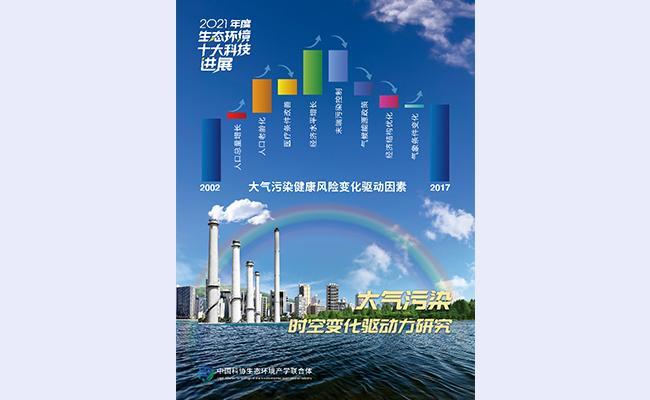A Tsinghua University research project on the driving forces of temporal and spatial variations in air pollution has been selected as one of the "Top Ten Chinese Scientific and Technological Achievements in the Ecology and Environment Field in 2021", which was released to the public on June 5 to mark World Environment Day.

The annual selection, nominated by academicians of the Chinese Academy of Sciences (CAS) and the Chinese Academy of Engineering (CAE), members of the Industry-University Alliance on Ecology and Environment affiliated with the China Association for Science and Technology (CAST), universities and research institutes nationwide, and voted by academicians of CAS and CAE, is designed to showcase the latest development made by China in frontier technologies of the ecology and environment field. The selection provides the country with technological support in the protection of ecological environment and the building of ecological civilization.
The research project of Tsinghua University was jointly conducted by researchers from the Department of Earth System Science and the School of Environment. It was supported by the National Natural Science Foundation of China (NSFC).
Its major contributors included Zhang Qiang, a professor from the Department of Earth System Science; Geng Guannan, an assistant researcher from the School of Environment; Tong Dan, an assistant professor from the Department of Earth System Science; Xiao Qingyang, an assistant researcher from the School of Environment; Zheng Yixuan, a graduate with a doctorate degree from the Department of Earth System Science; and He Kebin, an academician from the School of Environment.
The project developed a near real-time high-resolution air pollution data set to track the dynamic changes of air pollution in China. It also built a decoupling technology and analyzed the long-term trend and key driving factors of PM2.5 pollution changes in China. As a result, impacts of 8 factors in 4 aspects, including social and economic development, energy and environmental policies, meteorological condition changes and population vulnerability, were quantified. It was revealed that air pollution control and energy structure adjustment measures have played essential roles in promoting the reduction of PM2.5 concentrations in recent years.
The findings of their research project were published in several internationally renowned journals such as Nature Geoscience and Nature Climate Change in 2021. Notably, a research paper was selected as the cover paper of Nature Geoscience in commemoration of its outstanding achievements.
Their high-resolution and near real-time data set of air pollution can be reachable by researchers from home and abroad via http://tapdata.org.cn. So far, over 800 users from more than 300 domestic and foreign research institutes have downloaded the data to facilitate their research. In addition, the data set has been applied in the assessment of clean air actions in China led by the CAE and in the air pollution control initiative during the Beijing 2022 Winter Olympics and Paralympics.
Editor:Li Han

